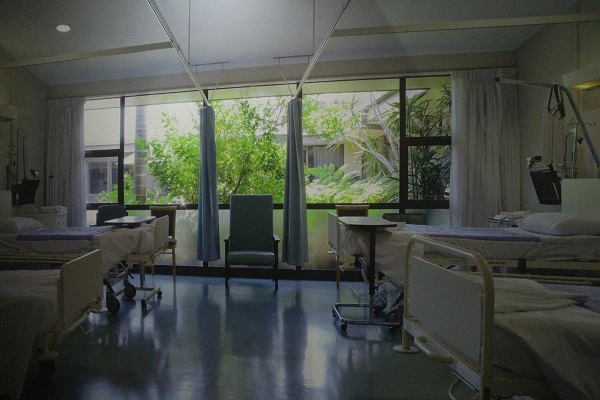 |
|
Smart LED lights for hospitals, such as this one was a major focus of Nanya Photonics and China Electric at TILS 2016 this year. Photographed here was a poster of a hospital setting at China Electric's booth. (All photos courtesy of LEDinside) |
Industrial lighting specialist Nanya Photonics and luminaire manufacturer China Electric (or also known as TOA Lighting) both featured smart LED hospital lighting at the four-day Taiwan International Lighting Show (TILS 2016) that took place in Nangang Exhibition Hall, Taipei from April 12-16, 2016.
 |
|
Nanya Photonics highlighted its Healthcare Environment Lighting Service at TILS 2016. |
Nanya Photonics Android system based smart LED hospital lights are already installed in Taipei Chang Gung Memorial Hospital. The multifunctional lights are enhanced with speakers, color tuning and dimming features, and can be used to broadcast patients favorite music. The smartphone or tablet controlled lights are connected using WIFI technology, and can program the lights brightness according to the sun’s position during the day.
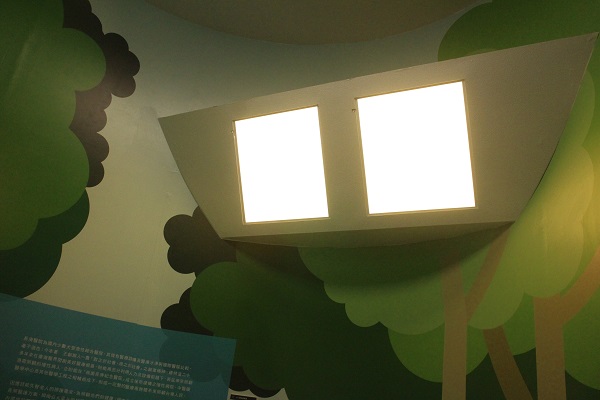 |
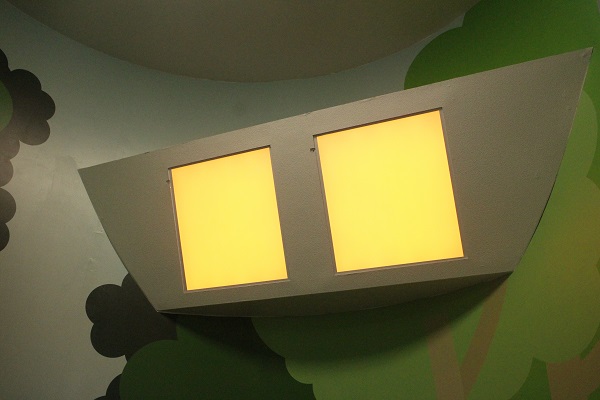 |
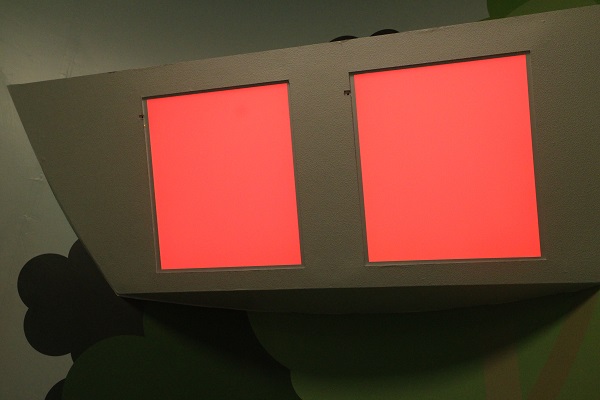 |
|
Nanya Photonics hospital LED lights are equipped with RGB LEDs that can swap colors using Android operating system devices. |
The LED lights are equipped with RGB LEDs that can flash in different colors, but are not normally used by hospitals, said company representatives. Most of the company’s LED luminaires use Epistar or Nichia LEDs. The company hopes to gain larger market share in Taiwan before exporting the lights to international markets.
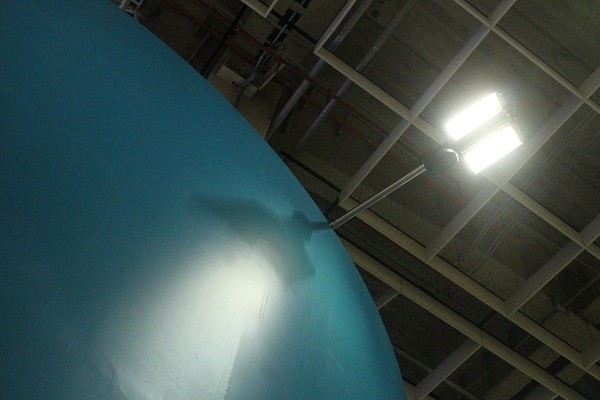 |
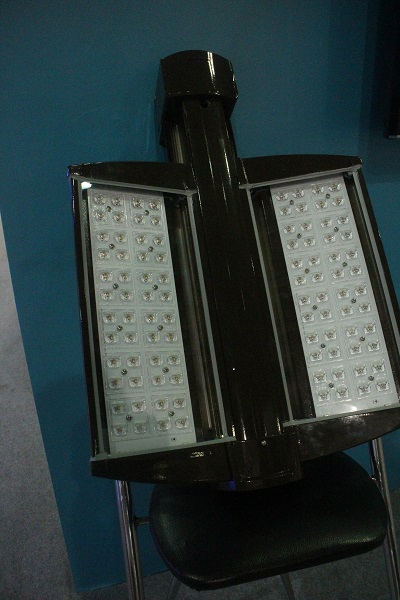 |
|
Top: Nanya Photonics surveillance camera integrated LED streetlights seen from afar. Bottom: The same LED streetlight module seen upclose. |
Another newly developed smart LED lighting product by Nanya Photonics is its smart streetlights that was launched in 2016. The LED streetlight equipped with a fish-eye surveillance camera is capable of motion tracking analyses, warning features, and allows users to select surveillance points. However, the camera is unsuitable for license plate and facial recognition applications. Nanya Photonics collaborated with two Taiwanese companies on the surveillance camera and correlating analytics system.
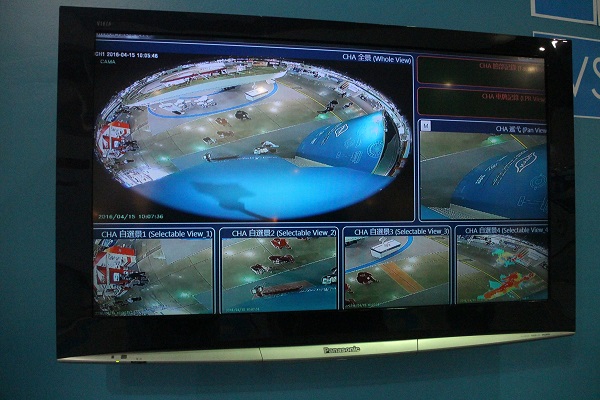 |
|
The surveillance camera and analytics system were developed by collaborating with other Taiwanese companies in the security surveillance sector. The surveillance analytic system currently does not support facial recognition and license plate recognition, due to the restrictions of the fish-eye camera used for the system. |
The lights have been installed in certain company plants, and the company is currently in talks with Hsinchu government in Northern Taiwan about installing the lights in traffic junctions and crossroads. Other potential markets for the lights is parking management, said Nanya Photonics representatives.
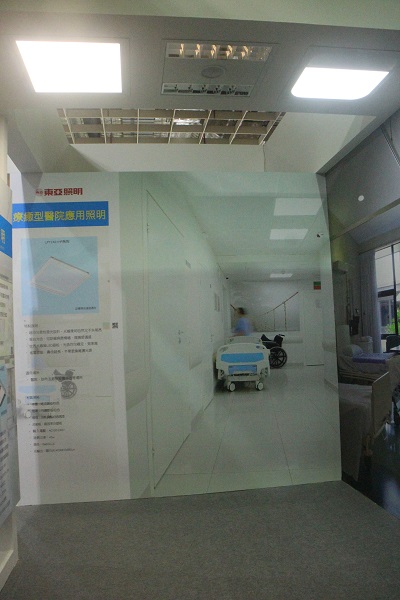 |
|
China Electric's two LED panel lights for hospital lighting applications focus on glare reduction. |
China Electric (TOA) aims to enter hospital lighting sector
Another Taiwanese company, China Electric, had a similar hospital lighting design. The company’s light was more focused on pragmatic use over fancy features, though. The lights emphasized glare reduction by using 45 degree light beam angle to reduce impact on patients’ eyes, and instead of using wireless technology the lights were dimmed by the light switch. White PCB light guide boards are used to reduce glare from the LED lights. The lights can be switched to fully on or partially on.
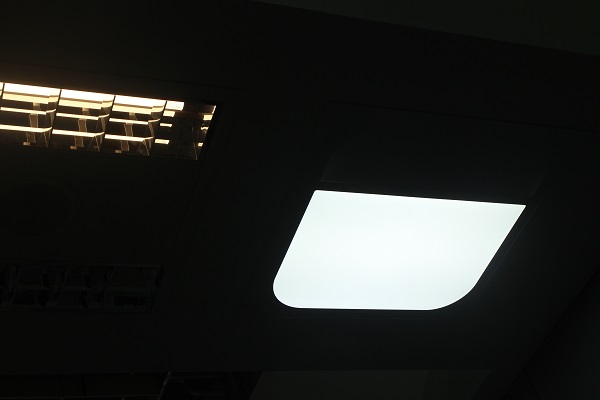 |
|
China Electric's LED panel lights for hospital applications seen up close. |
“We chose to build the wired lighting controls in the light switch to reduce electromagnetic interference from mobile devices on medical equipment,” said Frank Huang, Project Manager, Market Division, TOA Lighting, China Electric.
Implementing a similar strategy as Nanya Photonics, the company is targeting mostly Taiwan’s hospitals before bringing the product to oversea markets.
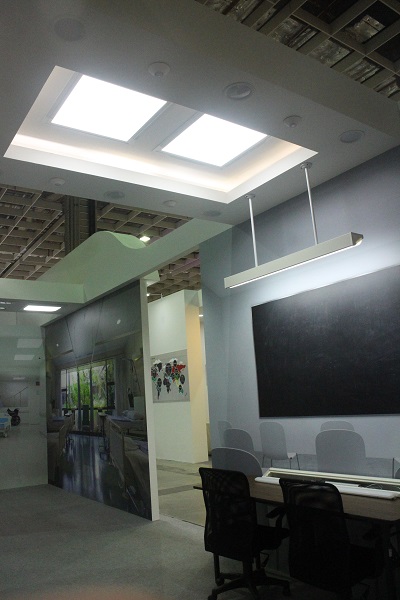 |
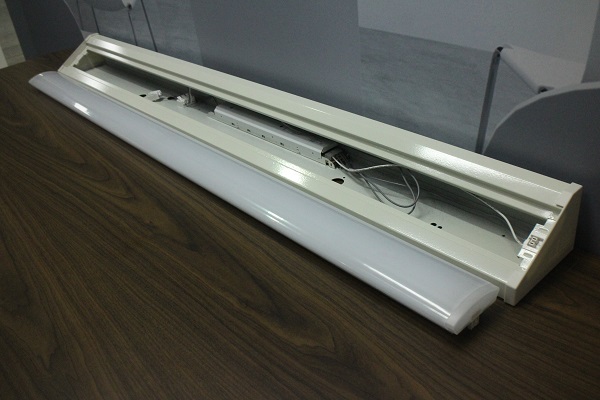 |
|
Top: Smart LED panels and LED tube lights for classroom applications, China Electric's Apple iOS based control system can manage up to 50 luminaires individually. Bottom: Removable LED tube light modules that are still in development. |
China Electric’s booth highlighted only smart lighting products this year, including Apple iOS controllable wireless LED luminaires for commercial lighting applications. The system can control dimming of up to 50 individual LED luminaires, and is also developing LED tube light modules that can be removed and replaced easily. The tube lights are still being developed in Japan and have not reached the market yet. For smart home lighting applications, the company also showcased color tunable smart lights, which the company is collaborating with certain construction companies in Taiwan to promote.
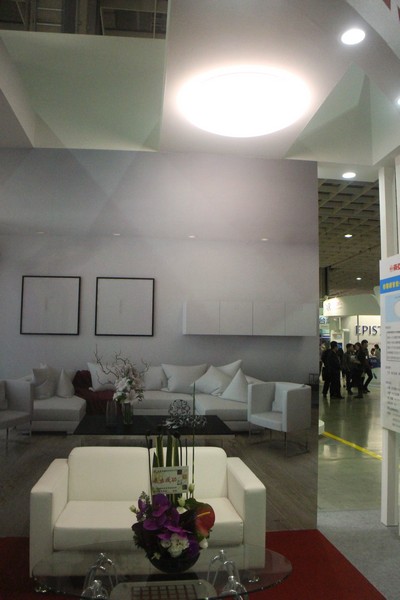 |
|
China Electric's smart residential LED lights. A lot of manufacturers showcased similar design concepts this year at TILS 2016. |
The company upheld an optimistic outlook for 2016, estimating the LED luminaire market penetration will reach 30% to 35% this year. The company also has a network of 2,500 traditional distribution channels, which it will continue to use to sell its products.
LEDinside observed at this year’s light show, more luminaire companies were launching smart indoor commercial lighting products that could be controlled wirelessly with Bluetooth, WIFI or IR designs. There were a growing number of residential smart lighting products, but Nanya and China Electric were one of the few that were focused on niche hospital lighting applications.
























